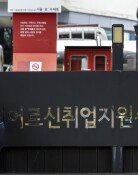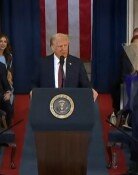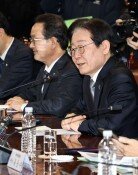Special Committee on Political Reform sits on hands for election boundary delimitation
Special Committee on Political Reform sits on hands for election boundary delimitation
Posted October. 19, 2023 08:32,
Updated October. 19, 2023 08:32
Despite that under six months are left before the National Assembly’s general election on April 10 next year, the National Assembly’s Special Committee on Political Reform, which is in charge of the election act that deals with election boundary delimitation and the issue of satellite parties is sitting on its hands. The election boundary delimitation led by the special committee already passed its first deadline on March 1 this year and the second deadline on October 12 without much to show for it. The article of the Public Official Election Act, which states that election boundaries for National Assembly members should be delimitated until a year before the election date, was practically useless. Under the current situation, candidates will have to run for the election without knowing where their electoral districts are even after December 12, when the registration of preliminary candidates begins.
What’s more significant is that there has been no progress in discussions on the constituency system and the fixed number of members, which should precede election boundary delimitation. The special committee proposed three revised plans for “local constituencies + proportional representation” in March, but there have been no further discussions. The opposition parties call for increasing the number of seats for proportional representation, which currently is 47, while the ruling party, in contrast, says the fixed number of members should be reduced. The issue of proportional satellite parties, which was pointed out as a well-known trick during the 21st general elections in 2020, is a hot topic. The ruling and opposition parties have not agreed on whether to maintain or remove satellite parties, as each is calculating the political advantages and disadvantages of such parties.
With no major direction in the election act negotiation, the boundary delimitation seems far away. While the Election Boundary Delimitation Commission under the National Election Commission designated 31 electoral constituencies subject to adjustment, including combining Jongno-gu and Jung-gu in Seoul, it is only the base for further discussions. As discussions between the ruling and opposition parties get delayed, gerrymandering may occur as the parties try to keep their interests with the election date coming closer.
The current delay is partially caused by the fact that the parties' leadership, which has decision-making authority for discussions on the Election Act, is experiencing a leadership crisis and judicial risk and, hence, cannot focus on the Election Act issue. If conflicts about nomination within each party arise, discussions on the Election Act may be further delayed. However, if election boundary delimitation is handled haphazardly, it is a huge disservice not only to candidates running for the election but to voters. In addition, the issues regarding the Election Act are complicatedly intertwined and have a considerable impact, which means they cannot be solved quickly. The parties' leadership should run responsible channels to hurry discussions on contended issues regarding the election act.







